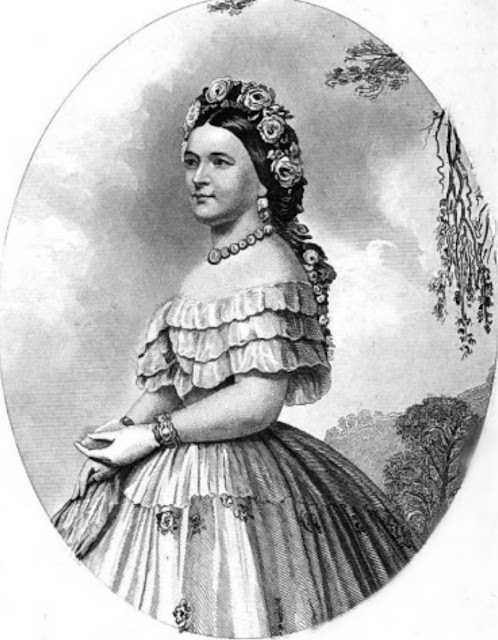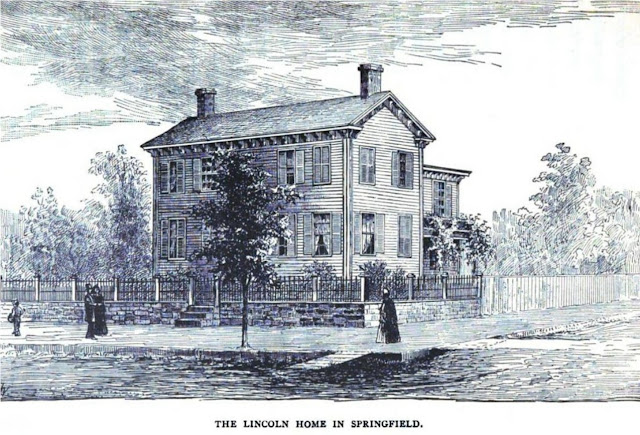In August 1869 Mary Todd Lincoln (1818-1882), widow of Abraham Lincoln (1809-1865) wrote to a friend, Eliza Slataper about a visit she had made to Highland Mary’s grave in the Old West Kirkyard in Greenock. She wrote that she had “heaved a sigh” at the graveside, no doubt reflecting on the death of her own husband. Highland Mary had been one of Robert Burns’ lovers who died in Greenock in 1786.
 |
| Mary Todd Lincoln |
The Lincolns had been great admirers of Robert Burns – Lincoln himself was known to recite Burns’ poetry and it was said that there was a bust of the Scots poet in the parlour of their home. It is thought that it was a Scottish schoolmaster, John (Jack) Kelso from Govan who introduced Lincoln to the poetry of Burns when he lived at New Salem, Illinois.
Mary Todd Lincoln spent the summer of 1869 in Scotland visiting her old friend Rev Dr James Smith who had been the minister at Springfield, Illinois where the Lincoln family had once lived and had been a friend of the family. Smith had invited the widow Lincoln to visit him.
 |
| Tad Lincoln |
Dr James Smith (1798-1871) was born in Glasgow. His parents, Peter Smith and Margaret Bruce,
died when he was very young and he was raised by his uncle Hugh Smith, a
wealthy Glasgow merchant, and his wife Christian Gilfillan. After attending Glasgow University, on reaching
the appropriate age, in 1816 James Smith took charge of his inheritance from
his father, married his sweetheart, Elizabeth Black and emigrated to America. He tried various trades before becoming a Presbyterian
Minister settling at Springfield from 1849 till 1856.
In 1861 Smith’s son Hugh had been appointed Consul at Dundee but had to return home due to ill health. James Smith was given the post by the then President Lincoln (after some lobbying from Smith’s friends and family). He seems to have enjoyed being back in Scotland but missed his family.
He died at Dundee in 1871. A large procession of magistrates and officials from Dundee followed the hearse to Dundee railway station. The local newspaper reported that the streets were lined with large crowds. The coffin, guarded by a detachment soldiers, was taken to Glasgow. The Rev Dr James Smith was buried in the family grave in Calton Cemetery, Glasgow.



.JPG)
.JPG)
No comments:
Post a Comment
Your comments are very welcome.